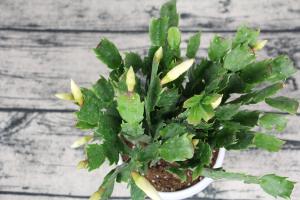When Can I Plant Tomatoes in Denver?
Tomatoes are a popular vegetable to grow in home gardens. They’re delicious, nutritious, and versatile, and they can be grown in containers, raised beds, or in the ground. If you’re a gardener living in Denver, you may be wondering when you can start planting tomatoes. Here are some tips and guidelines to help you determine the best time to plant tomatoes in Denver.
Climate and Weather in Denver
Before you start planting tomatoes, it’s important to understand the climate and weather patterns in Denver. The growing season in Denver typically runs from mid-April to mid-October, but the weather can be unpredictable. Denver experiences a range of temperatures throughout the year, with hot summers and cold winters. The frost-free period in Denver normally runs from around May 10th to October 1st, so it’s important to avoid planting tomatoes until after the last frost date has passed.
Choosing the Right Tomato Variety
There are many different tomato varieties to choose from, and some are better suited to growing in Denver than others. When selecting tomato seeds or seedlings, look for varieties that are adapted to cooler climates and shorter growing seasons. Some good options for Denver include ‘Early Girl,’ ‘Celebrity,’ ‘Fourth of July,’ and ‘Cherokee Purple.’ These varieties are known for their ability to produce fruit quickly and are also resistant to common tomato diseases.
Starting Seeds Indoors
You can get a head start on your tomato growing season by starting your seeds indoors. This allows you to start growing tomatoes before the last frost date has passed, so you can transplant seedlings outdoors when the weather warms up. Start your tomato seeds indoors 6-8 weeks before you plan to transplant them outside. Use a high-quality seed starting mix, keep the soil moist but not too wet, and provide plenty of light. Once the seedlings have grown to around 6 inches tall and have their second set of leaves, you can transplant them into larger pots or into your garden bed.
Planting Tomatoes Outdoors
To plant tomatoes outdoors in Denver, wait until the last frost date has passed and the soil has warmed up. This usually occurs around mid-May to early June in Denver, depending on the weather. Tomatoes do best in well-drained soil that is rich in nutrients, so amend your soil with organic matter like compost or well-rotted manure before planting. Dig a hole that is deeper than the height of the root ball, and space your plants 2-3 feet apart. Water your plants deeply and regularly, and keep them well-fed with a balanced fertilizer throughout the growing season.
Caring for Your Tomato Plants
Tomatoes require regular care and attention to thrive in your garden. Monitor your plants for signs of pests or disease, and take action promptly if you notice any issues. Tomatoes also need plenty of water, especially during hot, dry weather. Water deeply once or twice a week, and avoid getting water on the foliage, as this can encourage disease. Remove any yellow or diseased leaves from your plants, and pinch back any extra growth to help your plants focus their energy on producing fruit.
Harvesting Your Tomatoes
With the right care and attention, you can expect to harvest ripe tomatoes within 60-80 days from transplanting seedlings. Depending on the variety you choose, you may see your first harvest in late June or early July. Harvest your tomatoes when they are ripe but still firm to the touch. If you’re growing indeterminate tomato varieties, be sure to provide support for your plants, such as tomato cages or stakes, to keep them from becoming too heavy and sprawling.
In conclusion, planting tomatoes in Denver requires careful attention to the climate and weather patterns, choosing the right variety, starting seeds indoors, planting at the right time and in the right soil, and providing regular care and attention. With these tips and guidelines, you’ll be able to enjoy a bountiful harvest of delicious homegrown tomatoes all summer long.

 how many times do yo...
how many times do yo... how many planted tre...
how many planted tre... how many pine trees ...
how many pine trees ... how many pecan trees...
how many pecan trees... how many plants comp...
how many plants comp... how many plants can ...
how many plants can ... how many plants and ...
how many plants and ... how many pepper plan...
how many pepper plan...































